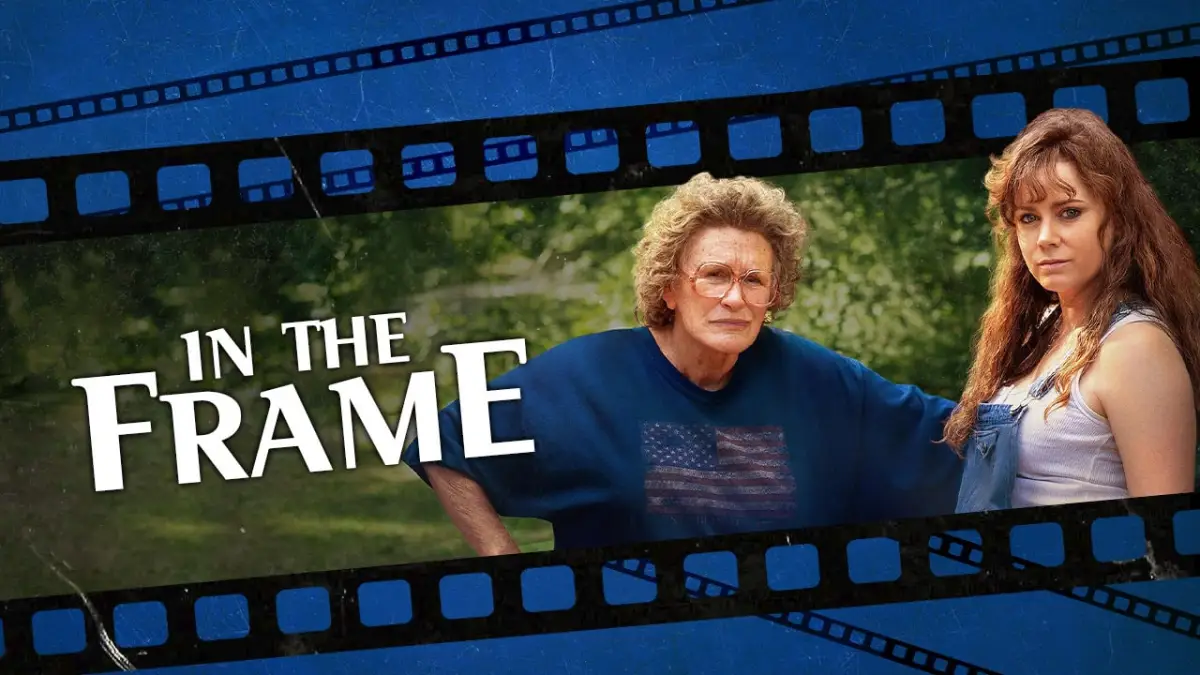Hillbilly Elegy releases on Netflix tomorrow.
Adapted from the bestselling memoir by J.D. Vance, it exists as part of the company’s annual awards season push, hoping that the relative scarcity of big-budget prestige pieces might force the Academy to recognize the streaming service’s awards slate. After all, despite producing movies like Martin Scorsese’s The Irishman, Noah Baumbach’s Marriage Story, Fernando Meirelles’ The Two Popes and Alfonso Cuarón’s Roma, the studio has yet to take the top honor of Best Picture.
A lot of Netflix’s awards season attention is focused on David Fincher’s Mank, the sort of beautiful auteur-driven snapshot of Hollywood history that serves as catnip to awards voters and cinephiles. Ron Howard’s Hillbilly Elegy is a different sort of prestige piece, the kind of movie constructed by extremely wealthy filmmakers to explore entire social classes often overlooked and ignored by pop culture — as demonstrated by derisive descriptors like “the flyover states.”
A cynic might argue that movies like Hillbilly Elegy primarily exist to allow moviemakers to give each other awards for the effort. This cynicism is not always earned. There have been many great films made about the white rural classes in the past decade — from Debra Granik’s Winter’s Bone to David Mackenzie’s Hell or High Water. This year alone, Chloé Zhao’s Nomadland is a major awards contender, while Annabelle Attanasio’s Mickey and the Bear has been sorely overlooked.
Unfortunately, Hillbilly Elegy feels like the most cynical example of the genre, serving as a potential awards vehicle for actors Glenn Close and Amy Adams. Adams in particular has cultivated a narrative similar to the one that followed her Catch Me If You Can co-star Leonardo DiCaprio in the early part of last decade: that of a generational talent who has seen her best work consistently ignored by awards bodies. Hillbilly Elegy arrives as an opportunity to correct that wrong.

There are a lot of problems with Hillbilly Elegy, many of which have been articulated (at length) by people far more qualified to explore the book and film’s weird voyeuristic fascination with white poverty. However, for us, there is one other small — but fundamental — problem with the movie. Hillbilly Elegy builds its central metaphor around Terminator 2: Judgment Day, without understanding Terminator 2: Judgment Day.
Because Hillbilly Elegy is constructed as an inspirational mass-market piece intended to leave its audience feeling happy and comfortable that they have just watched something of material value, the movie features an upbeat central metaphor that’s just asking to be embroidered on an elderly relative’s throw cushion. Think of the “two wolves” story from Tomorrowland or the title character insisting that “life is like a box of chocolates” in Forrest Gump.
The movie’s big motivational speech comes from Vance’s grandmother, named “Mamaw” and played by Glenn Close. “Everyone in this world is one of three kinds: Good Terminator, a Bad Terminator, and Neutral,” she explains to her grandson (Owen Asztalos), in a scene the film suggests he internalizes. When J.D. suggests that she is “a Good Terminator,” she replies, “I wasn’t always. I had to learn. You could be too, if you don’t fuck it up.” It’s inspirational. It even features in the trailer.
At its core, Hillbilly Elegy is the story of the work that J.D. puts into becoming “a Good Terminator.” He studies hard at school. He calls out his drug-addicted mother Bev (Adams) when she does things like let her health insurance lapse. As his mother spirals into drug dependency implicitly due to use of opioids at the hospital where she works, J.D. comes out the other side of his own experience with the “gateway drug” marijuana with a stronger sense of resolve.

While Mamaw eventually takes J.D. away from Bev and instills in him the virtue of hard work, the film also suggests that J.D. is just inherently more intelligent and compassionate than the people around him; he is introduced as a child caring for a wounded turtle that older teenagers want to peel out of its shell and kill. Hillbilly Elegy keeps insisting that J.D. is an exceptional and singular figure, particularly when contrasted with the people around him.
J.D. repeatedly discovers that he is on his own. Mamaw assures him that “you always got me,” only for J.D. to come home and find her collapsed in the very next scene. Later, his sister Lindsay (Haley Bennett) pleads, “Don’t make us your excuse, J.D.” In the film’s closing moments, J.D. explains that his own success escaping the environment in which he grew up — and his own path to becoming a successful lawyer and venture capitalist — is really a triumph for his family’s “shared legacy”.
If anything, this arc recalls the broad strokes of John Connor within the Terminator franchise, rather than any individual Terminator — whether Good or Bad. In The Terminator, John is established as mankind’s only hope, while Sarah Connor (Linda Hamilton) is defined by her role as mother to the man who will save mankind. At a distance, there might be echoes of J.D.’s self-narrated arc in the idea of the son of a waitress who ultimately becomes a messianic figure.
Of course, it is still an extremely odd metaphor to use for the story of a young man seeking to leave behind a life of rural poverty, but at least it almost fits. However, Hillbilly Elegy doesn’t compare J.D. to John. It doesn’t make reference to The Terminator. Mamaw is clearly watching Terminator 2: Judgment Day, and the reference to the idea of “a Good Terminator” explicitly references the heroic T-800 played by Arnold Schwarzenegger in Terminator 2: Judgment Day.

However, unlike Mamaw, the T-800 did not “learn” to be “a Good Terminator”. It was explicitly reprogrammed from an unstoppable killing machine to an unstoppable bodyguard that occasionally did things like shoot people in the kneecaps. The Terminator was not an exceptional creation, but a product of its programming. Notably, the Terminator in Judgment Day never tries to fight its programming or to escape its obligations to John Connor (Edward Furlong).
As with director James Cameron’s Aliens, Judgment Day is essentially the story of a constructed nuclear family unit — with the Terminator coming to serve as a surrogate father figure to John. In that sense, again, the dysfunctional family dynamics of Hillbilly Elegy echo Judgment Day. As Sarah Connor narrates, “It would never leave him, and it would never hurt him, never shout at him, or get drunk and hit him, or say it was too busy to spend time with him. It would always be there.”
This provides a sharp contrast to Hillbilly Elegy, where the story is driven not so much by the reconstruction of a dysfunctional family dynamic so much as the escape from one. The flashbacks that drive so much of Hillbilly Elegy are largely anchored by a plot thread that finds an adult J.D. (Gabriel Basso) forced to return home after his mother has a heroin overdose, followed by racing to get back to the city in time for a job interview that offers the chance of a better future.
In contrast, while J.D. spends so much of Hillbilly Elegy desperate to escape the family with which he has found himself, the Terminator in Judgment Day commits himself to supporting the Connors. At John’s command, he breaks Sarah out of custody and reunites John with her. At the climax, the Terminator even sacrifices himself to protect the future and hopefully spare John the burden of having to become the messianic figure in the war against the machines.

Like many great sequels, Judgment Day challenges and inverts the expectations of The Terminator. The original suggested John was destined to be a “great man” of history, a figure of monumental importance in the future of humankind. Judgment Day introduces John as a petty criminal, “a little dipshit.” The film emphasizes the importance of people around him — like Sarah and the T-800 — in helping John grow up into a man, even one free of the burden of being mankind’s “shared legacy.”
Crucially, the T-800’s character arc is built on his evolving empathy — his growing understanding of the people around him. “I know now why you cry,” he tells John in his penultimate line. “But it’s something I can never do.” What defines the T-800 as “a Good Terminator” is not its own self-interest or its self-advancement, not the fact that it seeks to escape its obligations or advance its own desires. Instead, the T-800 finds humanity in its empathy for others.
The character and thematic arcs in Hillbilly Elegy are sharply opposed to those in Judgment Day. While Judgment Day is about what people owe to others and the necessity of reconciling and understanding an unconventional family unit while facing systemic problems like the inevitable robot apocalypse, Hillbilly Elegy is a story about an individual seeking to escape the tangled mess of obligations that they might owe to the people around them in order to pursue their own dreams.
This fundamental misunderstanding of Judgment Day might not be the worst thing about Hillbilly Elegy, but it speaks to the general shoddiness of the film around it. At one point, Mamaw boasts that she has seen this movie “about a hundred times.” Maybe the production team could do with watching it once more and paying a little more attention.






Published: Nov 23, 2020 11:00 am